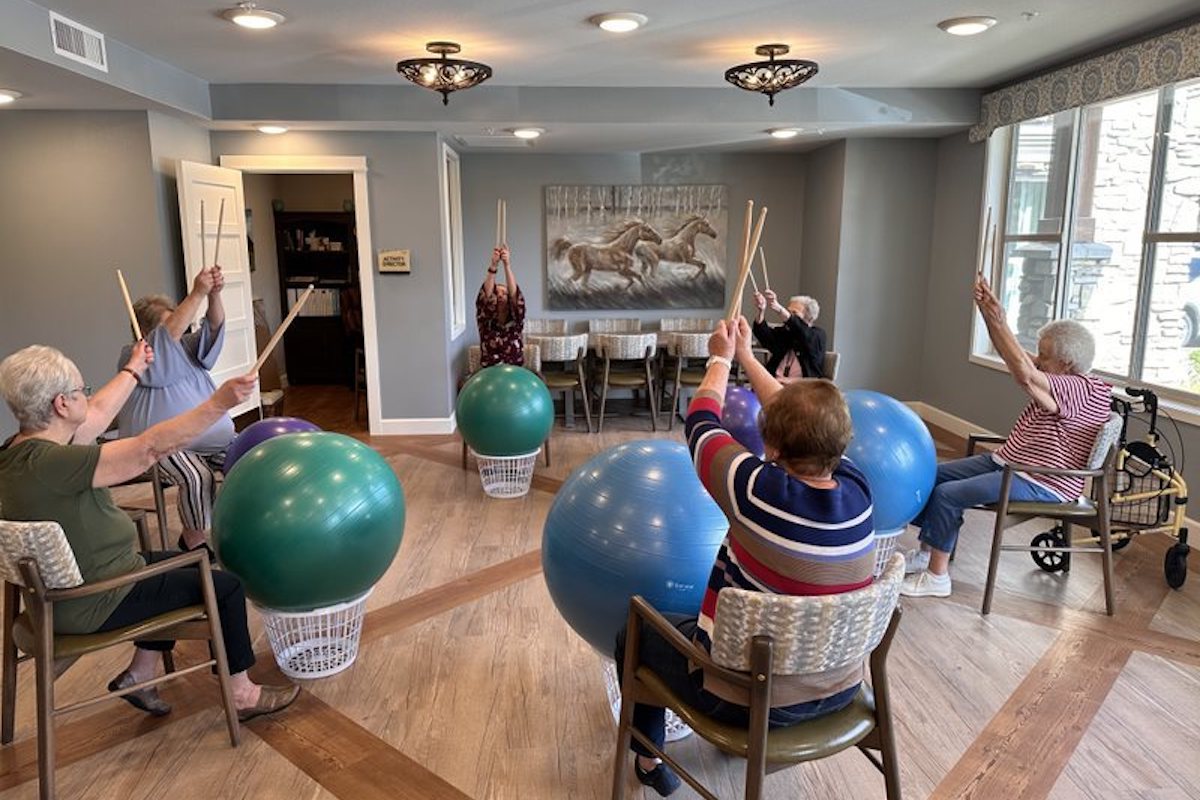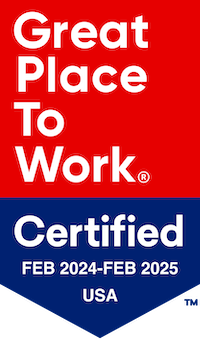When you step into a doctor’s office, one of the first things they do is wrap that familiar cuff around your arm and take your blood pressure. This routine procedure is more than just a box to be ticked off during a medical examination. It’s an essential snapshot of your circulatory health, a system that comprises your heart and blood vessels.

Staying informed about senior health and wellness is essential. Read on to understand the ins and outs of blood pressure. We’ll explore what ‘normal’ blood pressure looks like for seniors, delve into the implications of high blood pressure, and offer insights on managing and maintaining healthy blood pressure levels.*
You’re in the right place if:
- You’re a senior citizen keen on taking charge of your health
- You are a family member or caregiver looking for reliable information
- You are someone who wishes to understand cardiovascular health better
- You would like to learn more about the levels of senior living that support high blood pressure
*This content is intended to provide a general understanding of the topic. Always consult with a health care provider for individual health concerns.
What is Blood Pressure?
In its simplest form, blood pressure is the force exerted by your blood against the walls of your blood vessels. It’s like the water pressure in your home’s pipes:
- Too high, and there could be damage
- Too low, and things might not function correctly
Understanding blood pressure becomes even more essential in older adults. As we age, our blood vessels can become less flexible and narrower, which can increase blood pressure levels.
High blood pressure, or hypertension, is common in older adults. Left untreated, it can lead to serious health problems such as heart disease, stroke, and dementia.
Blood pressure generally refers to two numbers: systolic and diastolic.
The systolic number (the top number) measures the pressure in your arteries when your heart beats. The diastolic number (the bottom number) measures the pressure in your arteries when your heart rests between beats.
Maintaining a healthy blood pressure is crucial for overall health and well-being for older adults. But what does ‘healthy’ mean? That’s what we’ll explore next as we delve into the latest blood pressure range for seniors. The American Heart Association classifies seniors’ blood pressure ranges into five categories, ranging from normal (healthy) to hypertensive crisis (critical emergency level).
Discover Changing Standards in Senior Health Recommendations
People of all ages are at risk of decreased oxygen circulation, but seniors should be particularly conscientious. At least 45% of adults in the U.S. have hypertension. This statistic increases by 20% in the older adult population.
While the data on blood pressure for women varies slightly compared to the average blood pressure for men, the overall message is clear – seniors need to take their circulatory health seriously. We will review the new normal blood pressure recommendations for seniors and some tips for keeping your body in optimal health.

Updated Blood Pressure Recommendation for Senior Health Care
The new guidelines, introduced by the American Heart Association (AHA) and the American College of Cardiology (ACC), aim to provide a more comprehensive understanding of blood pressure and its impact on health. The revised blood pressure categories are based on a 2017 study and are as follows.
Blood Pressure Chart for Seniors
| Normal | Whereas the recommended threshold used to be up to 150/80 mmHg for those ages 65 and older, the new guideline decreases this healthy range to less than 120/80. This category indicates a low risk of cardiovascular disease and related complications. |
| Elevated | Systolic pressure ranging from 120 to 129 mmHg and diastolic pressure below 80 mmHg fall under this category. While not considered high blood pressure, it is a warning sign to make lifestyle modifications to prevent future complications. |
| Hypertension Stage 1 | Systolic pressure between 130 and 139 mmHg or diastolic pressure between 80 and 89 mmHg signifies stage 1 hypertension. Lifestyle changes and, in some cases, medication may be recommended to manage blood pressure at this stage. |
| Hypertension Stage 2 | This stage occurs when the systolic pressure is 140 mmHg or higher or the diastolic pressure is 90 mmHg or higher. Immediate intervention, including lifestyle modifications and medication, is usually necessary to reduce the risk of cardiovascular events. |
What the Updated Recommendation Means For You
In particular, older men should take note of this new health standard. The new guidelines state that 70% to 79% of men ages 55 and older are now classified with hypertension. Those who were previously considered healthy may now fall within the elevated categorization. If it’s been a while since your blood pressure was taken, consult your doctor to ensure you are within a healthy range.
What Causes Increased Blood Pressure With Age?
Natural changes in the body contribute to increased blood pressure. The main culprit is the vascular system’s health, with the arteries narrowing and losing elasticity over time. The arteries become less tractable and increase the applied pressure as the heart beats and rests between pumps.
What Are Healthy Blood Pressure Guidelines by Age and Gender?
But how do these guidelines differ when we consider gender? What’s a healthy blood pressure by age and gender? While blood pressure may vary slightly between genders, the new guidelines apply to both men and women. Therefore, whether you’re looking at ‘normal blood pressure by age female’ or ‘normal blood pressure rate by age’ for males, the ideal remains the same—120/80 mmHg.
Older normal blood pressure by age charts would suggest a reading of 119/70 mmHg for males 18 to 39 and 110/68 mmHg for females. The numbers were then elevated to 133/69 mmHg and 139/68 mmHg for senior men and women. But now, we are aiming for a fairly standardized range for all adults.
Knowing your blood pressure numbers and understanding the ‘blood pressure chart for females by age’ or ‘blood pressure by age’ for males is vital for maintaining good health in your senior years. But remember, while lifestyle modifications can be beneficial, always seek professional guidance for personalized advice.
Factors that Contribute to High Blood Pressure
Seniors often recognize that, along with age, several outside factors can contribute to high blood pressure, such as mobility, nutrition habits, and alcohol intake. Be aware of the following blood pressure elevators:
- High sodium intake
- Smoking
- Obesity
- Lack of exercise
- Potassium deprivation
- Stress
- Chronic conditions such as sleep apnea and diabetes
- Certain medications
How to Combat High Blood Pressure for Seniors
Always check with your doctor for their expertise to aid you in a clear path to improved health. They may recommend a medication to get your blood pressure under control. In addition to consulting your doctor, the following tips may help your circulatory system’s health.
- Eat a heart-healthy diet, including fish, omega-vitamins, whole grains, fruits, and vegetables.
- Incorporate stress-management techniques into your daily routine.
- Yoga, Tai Chi, and daily stretches can moderate your stress and also help to improve balance.
- Get a good night’s sleep. Not only will some shut-eye help your blood pressure, but it will also boost your brain function.
- Get up and get moving. Physical exercise can help your heart health and enhance your spirits as well.
Keeping your blood pressure within a healthy range is vital for overall well-being and preventing cardiovascular conditions.
Understanding the updated blood pressure guidelines is essential for individuals to take control of their health. By monitoring blood pressure regularly, making necessary lifestyle modifications, and seeking professional guidance through senior health care, assisted living, or memory care, you can reduce the risk of complications and promote a heart-healthy life.
Stay informed, stay proactive, and prioritize your cardiovascular health.
Discover a community that helps regulate healthy blood pressure for seniors.
The passionate team at Civitas Senior Living is here for all your health needs. Whether you need help making a doctor’s appointment, assistance with medication management, or guidance with exercise and nutrition, a loving team member is here for you.
Contact us to learn more about our heart-healthy activities for seniors.


